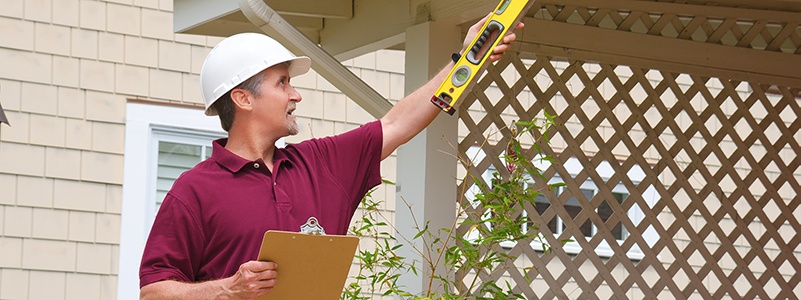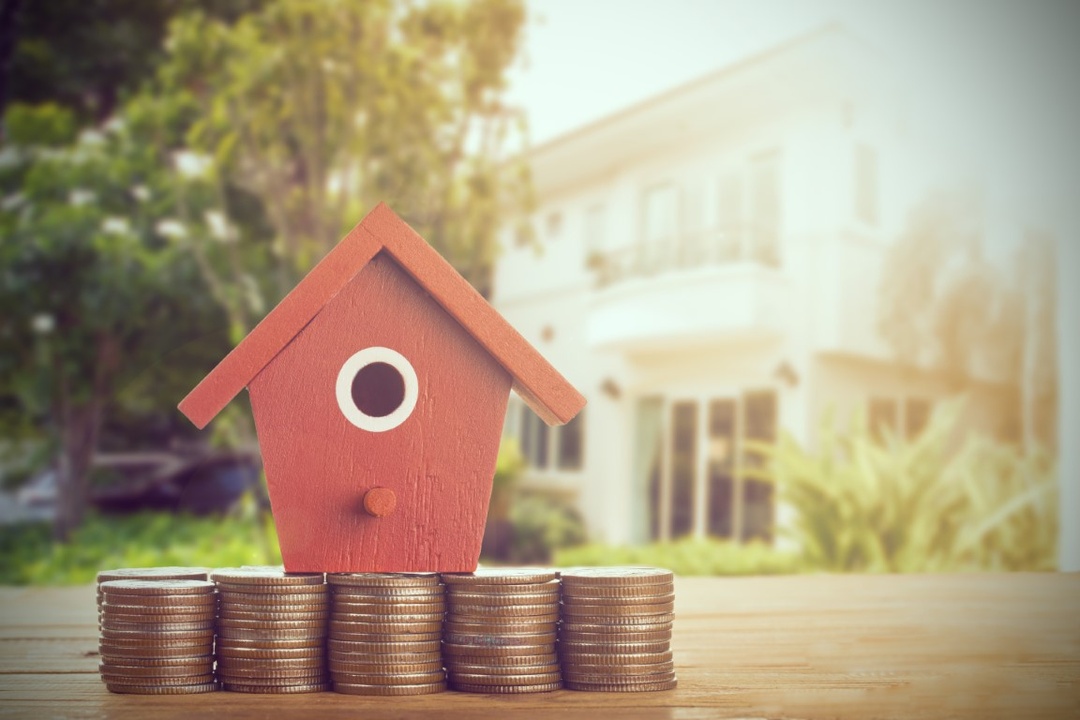
The average cost of a home inspection is $300 - $500, according to the US Department of Housing and Urban Development. The specific cost will depend on a number of factors, including square footage, the region where the home is located, and any special services that may be required.
With all of the costs facing home buyers, it can be easy to see a home inspection as a costly luxury and not a vital necessity, but that could be opening yourself up for serious issues down the road.
Opting out of a home inspection is not advisable, no matter if you are buying a newly constructed home or a 100-year-old historic property. It is important to take ownership of your new home with your eyes open.

What Is a Home Inspection?
A home inspection is a thorough check of a home performed by a trained and licensed professional home inspector, who will perform a detailed examination to look for issues and potential issues.
They will check electrical and plumbing, HVAC components, safety features, windows and doors, insulation, and more and then provide a detailed report on the property’s current condition and potential problems that could arise down the road.
As a buyer, you can write an inspection contingency in your offer to allow you to request repairs or terminate based on the information provided in the inspection report.

Why Do You Need One?
Buying a home is the single most expensive purchase you will make in your lifetime and it’s important to go into that purchase armed with as much information as possible.
Just as most people research their appliances, cars, and electronics before they buy, you should dig a little deeper into the home you’ve chosen before you sign on the dotted line.
A home inspector is trained to look at a home from foundation to roofing to make sure there are no unknowns lurking in the walls of your dream home that could be serious issues for you in the future. Having this information is vital to making an informed decision when purchasing a home.

What Are the Average Prices for a Home Inspection?
As mentioned previously, the national average cost for a home inspection is $300-$500. The popular home service booking website Angi (formerly Angie's List) reports a similar range among its members, with most paying $375 - $550 for a home inspection, with a $473 nationwide average.
Varying Factors
There are a number of factors that can affect the final price of a home inspection, including where you live, and the size and age of the home.
Regionally, home inspection costs can vary due to weather, the current market, and the number of available inspectors. The average home inspection cost in Austin, Texas is $452, compared to New York City’s average cost of $1,025 and Detroit, Michigan’s average cost of $325 (as reported by Angi and Rocket Homes).
The size of the home will also affect the price. Many inspectors offer base rates by square footage or square footage ranges for a standard inspection. The larger the home, the more expensive the inspection will be.
General home inspection cost ranges by square footage*:

*As reported by fixr.com. These numbers are for reference only. Speak to your home inspector for specific pricing.
Home inspectors may also charge more for older homes. A property that is older will require more time as the list of potential issues and code violations increases.
From plumbing and wiring to hazardous materials, the inspector will have to spend more time to ensure no issue is overlooked. Be sure to discuss the age of the home with potential inspectors to find out what, if any, added costs there will be.

Specialized Inspections
Some homes may require specialized inspections that will also add to the total cost. Realtor.com notes that the added cost will vary from $25 for simple inspections to $200 for inspections that may require specialized equipment or laboratory testing. Some common types of special inspections include:
* Asbestos
* Lead
* Mold
* Termite
* Foundation
There may also be region-specific special inspections that would be prudent to include. Talk to your REALTOR® about what additional inspections may be necessary for your property.

How Long Does It Take?
Before the inspection can even be performed, you will need to choose your inspector and wait for them to be available. If you are buying a home in a hot real estate market, this could delay your inspection by a few weeks.
Your REALTOR® will also need to coordinate a time with the seller to perform the inspection, as the homeowner should be absent from the home during the process. It is important to begin the process of choosing an inspector as soon as you know you will need one in order to minimize your delay time.
The actual inspection itself typically takes two to three hours to complete, with variance depending on the size of the home and the scale of inspection. Other contributing factors that may lengthen the inspection time include multiple HVAC units, special inspections requiring data from multiple days, or waiting on test results from a laboratory.
Once the inspection is completed and any lab results are returned, your inspector will create an inspection report detailing all findings, along with recommendations, and go over it with you to make sure you understand all points. The inspection report is typically presented within 24 to 48 hours.

What Sort of Issues Does an Inspector Look For?
Your home inspector will do a thorough examination of the major systems and structure of the home. The International Association of Certified Home Inspectors has a list containing 1,600 individual items that their inspectors should examine in all inspections.
They will not be looking for cosmetic damage, but will instead be focused on signs of serious damage, building code violations, and indicators of potentially developing issues.
While we can’t detail every item to be inspected, here are the major areas of coverage.
Yard
Before even entering the house, the home inspector will carefully look over the grounds to ensure there is no standing water or other drainage issues.
They will also visually inspect downspouts, retaining walls, rails or posts, and pathways to check for signs of damage or issues. Many will also look over landscaping and note the condition of trees and bushes.

Exterior
Once the yard has been fully examined, the home inspector will carefully inspect the exterior of the home, including the main structure, the roof, and the windows and doors.
They will check for signs that the home has foundation issues and look for cracks or rot in the siding or masonry. Up on the roof, they will be checking the shingles and gutters, plus any skylights and chimneys for signs of damage or leaking.
Interior
The home inspector will then move to the interior of the home, and inspect each room for signs of framing issues, such as leaning walls. They will also check for water damage from potential leaks and make sure there is adequate amounts of insulation and proper ventilation for HVAC in each room.

Kitchen and Bathrooms
In the kitchen and bathrooms, the home inspector will be focused on ensuring electrical outlets are properly grounded and that there are no leaks under the sink and around fixtures or signs of water damage. They will also check that all faucets and showers work properly.
They will be additionally inspecting the kitchen to make sure the cabinets and drawers are functional, the vent hood is connected to the outside, and any appliances that convey are in working order.
Systems and Plumbing
Your home inspector will do a detailed check of all electrical systems and wiring to make sure they are up to code, in proper working order, and do not present any hazards. This will include outlets, wiring, light switches, and HVAC systems.
The plumbing will also be thoroughly inspected throughout the home, including all pipes, drains, and water heater, and they will also check the water pressure and temperature.

How Do You Choose a Good Inspector?
First and foremost, you need to ensure any inspector you choose is properly licensed and has the tools and experience to fully inspect the home. Talk to your REALTOR® or people in your social circle who have recently bought a home to get referrals and recommendations on potential inspectors. Checking online reviews can also be a great way to find a reputable inspector in your area.
It is important to interview any potential home inspector and get a feel for how they operate. Ask them questions about their certifications and years of experience, their home inspection process, and areas they like to focus on. You can also speak to them specifically about the home you are wanting to be inspected.
Ask them what their process is for inspecting the home and what inspection services they offer. Will they get up on the roof or do they have a drone? Will they go into crawl spaces or attics to check the wiring? Make sure they have the right tools to do what you are requesting.
In all communication, they should be knowledgeable and accommodating. If the inspector doesn’t have time to talk to you or never calls you back, find an inspector willing to communicate openly and regularly.

Can You Attend the Home Inspection?
It is recommended that you do attend the home inspection and have your REALTOR® attend as well. Your Realtor will have experience with home inspections and will be able to help you differentiate between major issues and recommended upgrades when receiving what can be overwhelming amounts of information.
Come prepared to your home inspection with a list of questions or concerns you might have for your inspector. Do research into homes built in the era, and what potential issues you may run into. Speak to your inspector ahead of time and bring up any concerns you may have or areas you want to be sure they check.
When they have finished inspecting the entire home, they will do a walk through and explain everything they found in detail. Feel free to ask as many questions as you want here, this is your time to utilize their experience and expertise to garner as much understanding as possible.
A good inspector will also make a follow-up call 24- 48 hours after they deliver the report to talk through anything that concerns you. Their job is to walk you through the entire process and make sure you feel confident with the information.

What If Your Inspector Misses Something
If you discover a major problem after moving in that was not mentioned on the inspection report, contact your inspector to find out what your options are. A reputable home inspector will have liability insurance that may cover the cost of damages.
It will require proof that the damage was pre-existing and had not occurred since you moved in, or that there were prior indications that an issue would occur.
Please note that this is only possible if you hired the home inspector yourself. If the home inspector was hired and paid for by the seller, then their liability is to the seller, not to you. This is another reason why it is important to hire your own home inspector.

Who Pays for a Home Inspection?
As previously stated, it is important for buyers to select the inspector and pay for the home inspection themselves. It will allow you to have control of the inspection process and what is inspected, as well as provide you with options should a liability situation occur.
Some sellers may also choose to order a home inspection before listing the home to determine what issues may need to be fixed. If the seller has a recent home inspection that they did prior to listing the house, that information can be useful in deciding whether to put in an offer on a home or to determine the focus of your own inspection, but it should not be used as the only inspection.
While a home inspection may seem like an optional and costly step in the home buying process, the overall cost is offset by the peace of mind and avoidance of potentially expensive repairs down the line. It is far better to spend $400 on a home inspection upfront than to have to find $5000 for surprise water damage repairs six months after you close on your dream home.
For information on home inspections, check out Should Sellers Be Present at the Home Inspection and What Fixes Are Mandatory After a Home Inspection. If you have questions about the home inspection process, we’d love to help get you answers. Get started today at homecity.com.










